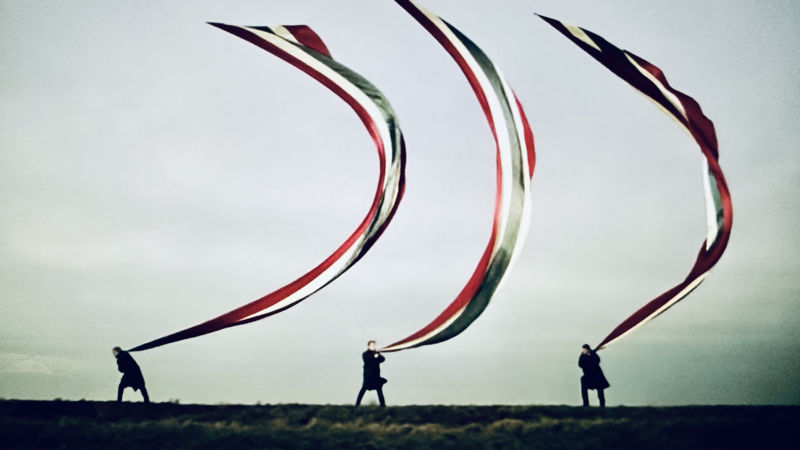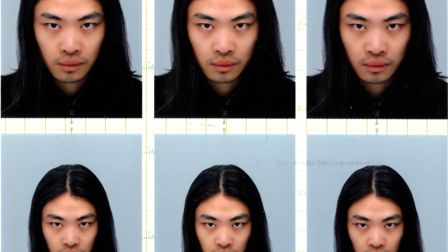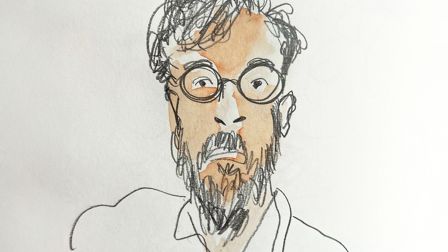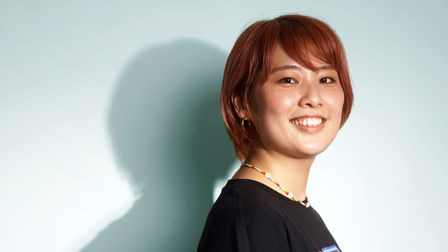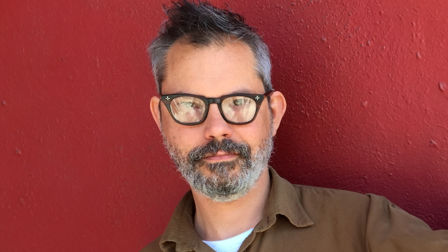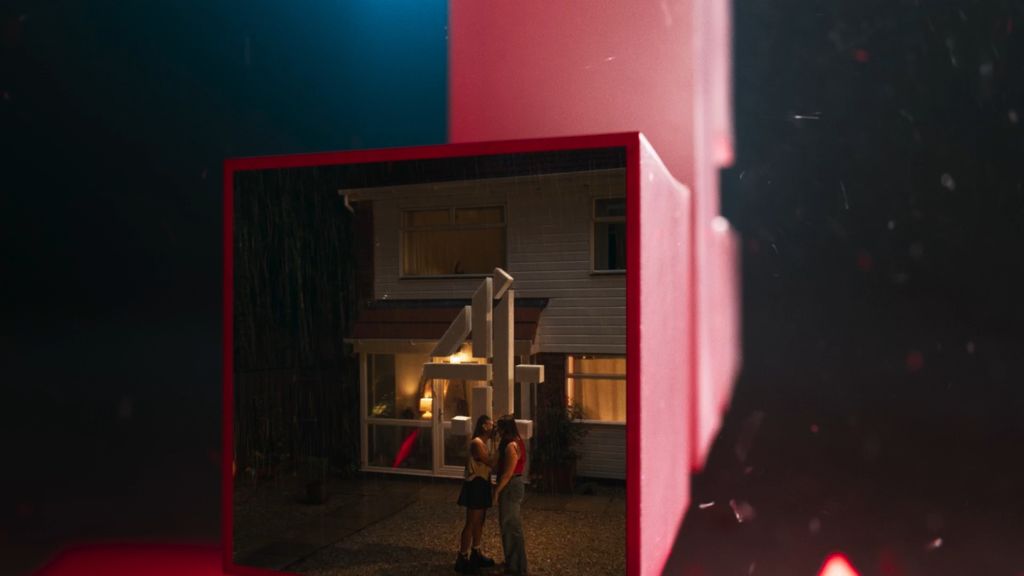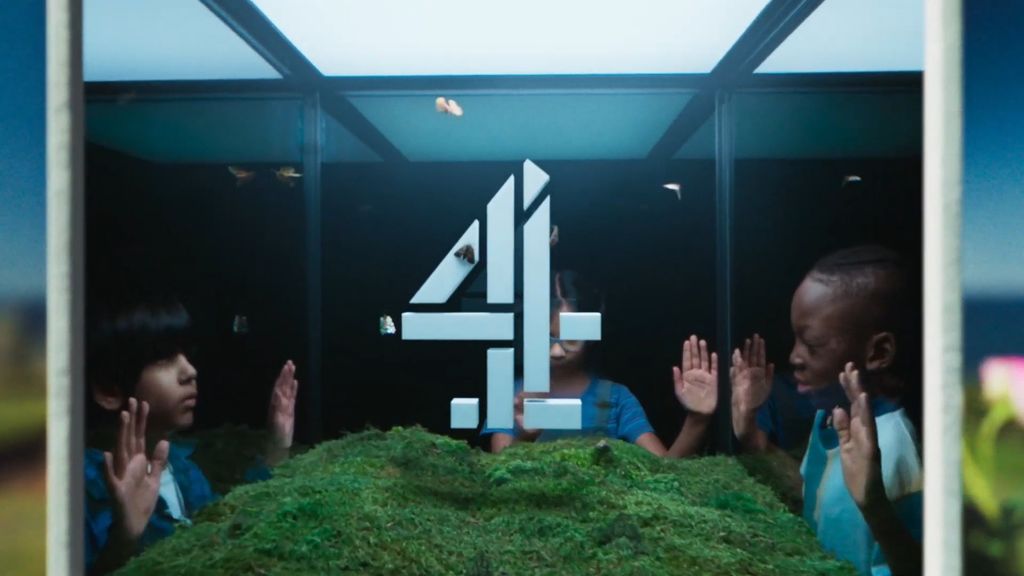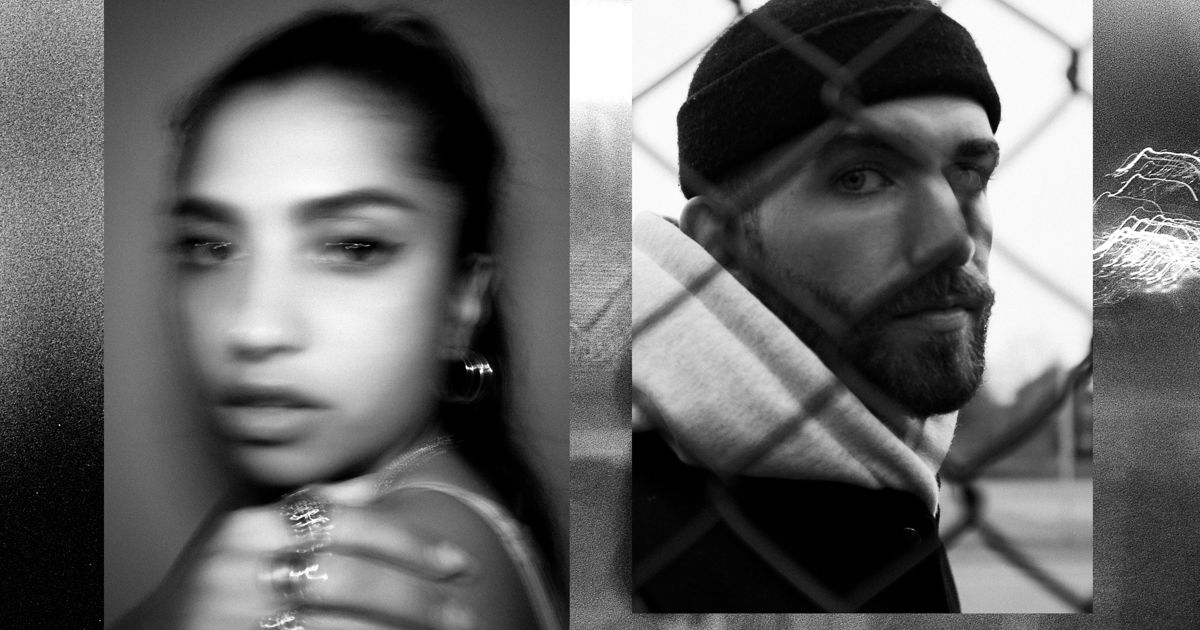Meet the new romantics
Though they’ve worked in the industry for a decade, as VFX artist and designer respectively, Jay Stephen and Ralph Briscoe only launched themselves as directorial duo The Romantix a year ago. They got off to a good start – winning their first commercial pitch – two of Channel 4’s award-winning 2023 idents. Their inspiration? The night they first met, they tell Tim Cumming.
Now signed to Art Practice, The Romantix – aka Jay Stephen and Ralph Briscoe – are not only a young couple in their early thirties, but also a way of approaching the world and all its contents, and maybe a state of mind; one that remains open.
The drawstrings of their work pull on the rich cultural diversity that has opened up and embedded itself in the UK, rather than the borders that confine it. Their first work, My Turtle Dove, “a love letter to Britain”, set out to reframe what it means to be patriotic, while their new idents for Channel 4 capture a tapestry of freeze frames of “what it means to be British” today.
When they first met, on a big night out in Newcastle’s Bigg Market, Stephen was studying graphic design – later to work in branding – while Briscoe was studying advertising. Both nursed ambitions to get into filmmaking.
Getting to observe amazing directors, filmmakers, VFX artists, colourists and DPs – that was my film school.
“It always seemed like such a hard-to-attain job,” says Stephen. “We never had connections so it was daunting to understand how to get in to it. So I went in to brand consulting and I love it, but again found myself moving closer to art direction in film.”
Credits
powered by
-
-
- Director The Romantix
-
-
Unlock full credits and more with a Source + shots membership.
Credits
powered by
- Director The Romantix
- Post Production Time Based Arts
- DP Francis Lane
- Producer Ralph Briscoe
- Producer Jay Stephen
- Editor Ralph Briscoe
- Colorist Myles Bevan
- VFX Supervisor Mike Aveling
- Post Production Jo Gutteridge
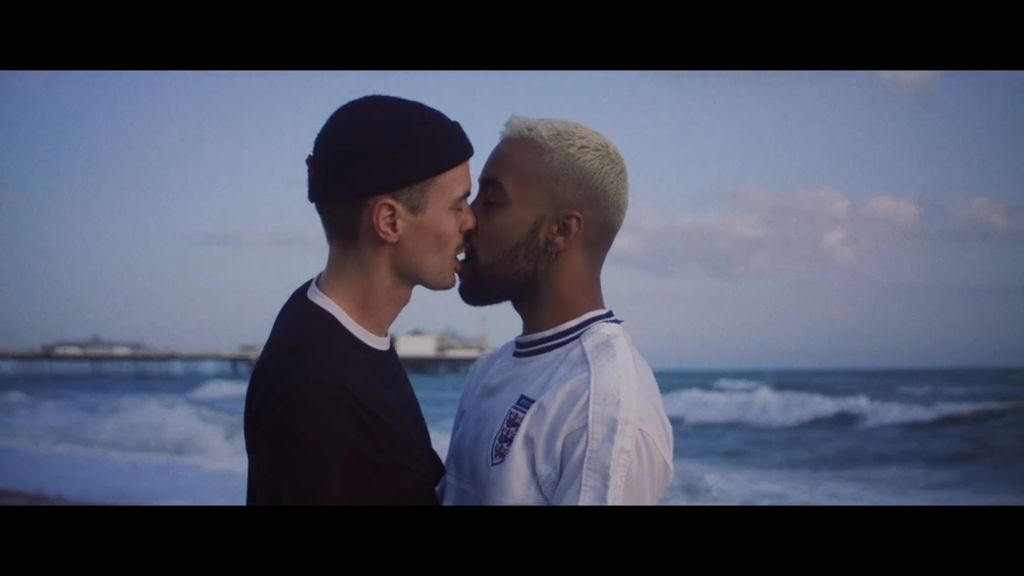
Credits
powered by
- Director The Romantix
- Post Production Time Based Arts
- DP Francis Lane
- Producer Ralph Briscoe
- Producer Jay Stephen
- Editor Ralph Briscoe
- Colorist Myles Bevan
- VFX Supervisor Mike Aveling
- Post Production Jo Gutteridge
The duo's first joint venture was My Turtle Dove, which was made on a budget of £1,000.
Briscoe, meanwhile, started out as a runner at Time Based Arts in east London. “Getting to be in that environment, with amazing directors, filmmakers, VFX artists, colourists and DPs, and observe all that – that was my film school,” he says, “and where I realised I wanted to write and direct films.”
Their first work was a passion project, 2017’s My Turtle Dove, the fruit of a £1,000 bursary from Briscoe’s employer. With that £1,000 budget to hire a camera and DP was added the good will of friends and associates, a bonding sense of community that extended to brands like Fred Perry and Converse sending them clothes so they could style people, a range of London locations that let them film for free, and Time Based Arts extending a helping hand in post.
People messaged us about what [My Turtle Dove] meant to them, which started our addiction to keep making work that means something and can help people in some way.
“Everyone who came on board was there because they were collectively willing us to do it. There was an amazing atmosphere, and it bonded us all. The film did better than we could ever have dreamed of. It was the first domino – we realised we could work together and be effective in collaborating.”
Credits
powered by
-
- Production Company Time Based Arts
- Director Ralph Briscoe
-
-
Unlock full credits and more with a Source + shots membership.
Credits
powered by
- Production Company Time Based Arts
- Director Ralph Briscoe
- Director Jay Stephen
- Executive Producer Tom Johnson
- Producer Will Parnall
- DP Francis Lane
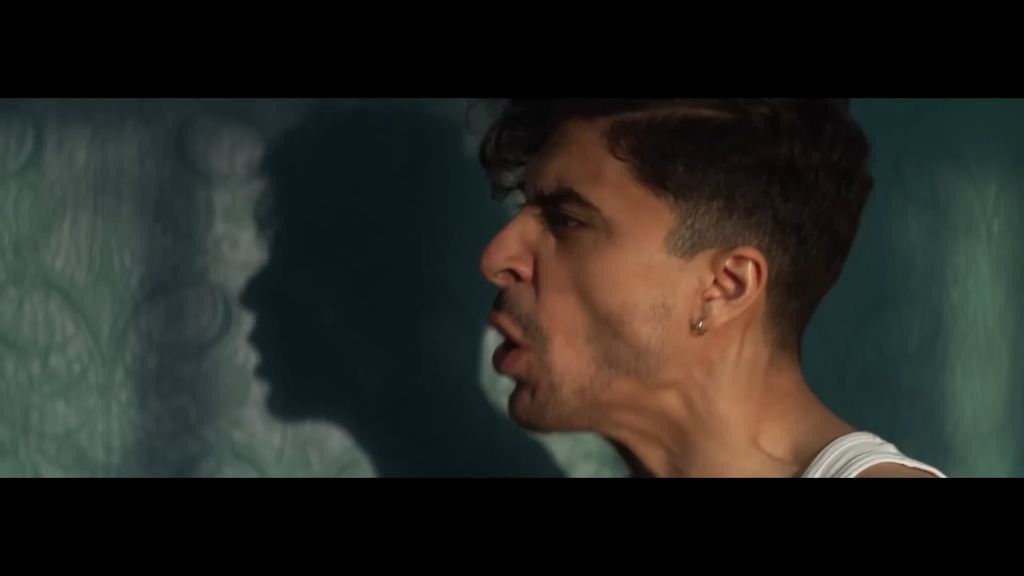
Credits
powered by
- Production Company Time Based Arts
- Director Ralph Briscoe
- Director Jay Stephen
- Executive Producer Tom Johnson
- Producer Will Parnall
- DP Francis Lane
The Romantix' music video for Bondax, The Real Thing.
With its message of love, tolerance, hope, integration and connection, My Turtle Dove
“was a reminder that what makes this country great is all these different cultures coming
together, not all this fighting,” says Stephen. “And it gave us this energy and confidence to
move in to that world. People messaged us about what it meant to them and that’s what
started our addiction to keep making the sort of work that does mean something and can
help people in some way.”
Their first professional piece of work, with a brief, a budget and a crew of 20 attached, was a music video for Bondax, Real Thing, starring fellow filmmaker Paul Raschid as an intense young hero driven off the rails by a drive for perfection. “It’s about the unrealistic expectations men place upon themselves to reach goals that are perhaps unobtainable,” says Briscoe.
Their own expectations, however, were being met. “We began to understand what it was like to work on a set with 20 other people,” says Stephen.
“It was exciting but constrained in another way,” adds Briscoe. “It was a very different experience, and drew on our personal experiences in a deep way,” he adds. “We spend a lot of time thinking about what we want to say, and it was a precursor to what we’re doing now.”
You can always see through things that aren’t authentic, so we want to ensure what we make feels real.
“We were finding stories that we couldn’t have done in our twenties,” agrees Stephen. “We began to realise what a better job you can do when you really understand a topic. You can always see through things that aren’t authentic, so we want to ensure what we make feels real and has meaning behind it.”
Two new films, Brown Brit and Checkerman (which is due to shoot in the summer), are, like My Turtle Dove, passion projects that draw deep from the well of their own experiences. The first augments 1980s home-video footage of Stephen’s mother in India, growing up, getting married and coming to the UK. “It’s about all those issues my mum went through,” says Stephen, “about race and marriage, love and relationships.” They shot new footage to fill gaps in the story, treating it in post to match the old footage, with Stephen’s younger sister taking their mother’s role, and the script drawn from a short story by her older sister.
I’d felt [my OCD] was something I needed to fix, that something was wrong with me, but the film challenges that notion.
Checkerman, meanwhile, draws on Briscoe’s experience of OCD. “It’s about a man’s understanding of his mental health over time,” he says, “a journey of self acceptance, understanding and reflection. I’d felt it was something I needed to fix, that something was wrong with me, but the film challenges that notion. It changes the perspective and embraces it as something unique and that makes you who you are. “Checkerman,” he adds, “was how I was referred to within the family – when I was a kid I used to check check check... It was something that haunted me for a long time, but not so much now. So it’s reclaiming the narrative around that idea.”
Credits
powered by
- Agency 4Creative/London
- Production Company Time Based Arts
- Director Jay Stephen
-
-
Unlock full credits and more with a Source + shots membership.
Credits
powered by
- Agency 4Creative/London
- Production Company Time Based Arts
- Director Jay Stephen
- Director Ralph Briscoe
- Post Production/VFX Time Based Arts
- Sound String and Tins
- Editor Fouad Gaber
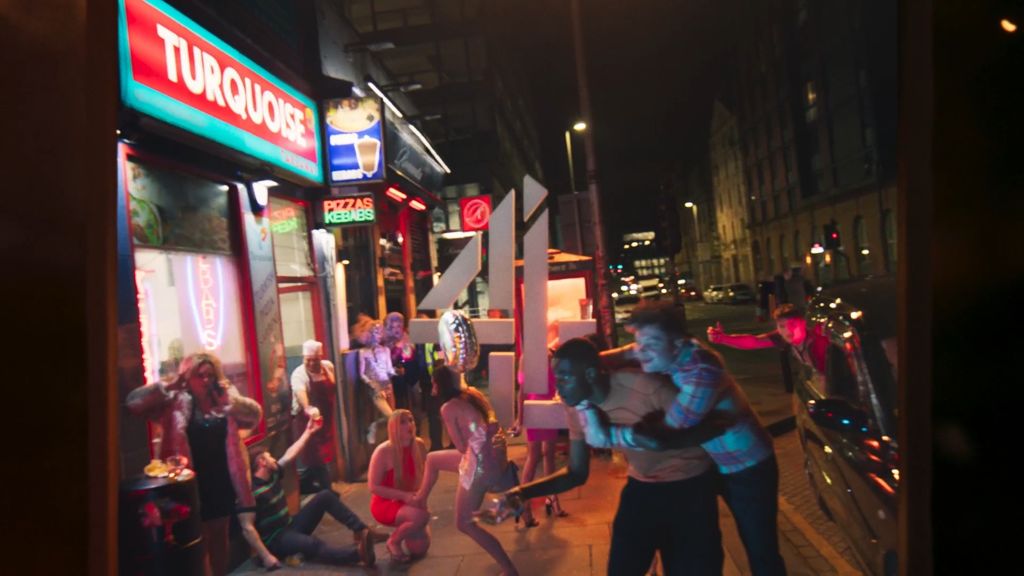
Credits
powered by
- Agency 4Creative/London
- Production Company Time Based Arts
- Director Jay Stephen
- Director Ralph Briscoe
- Post Production/VFX Time Based Arts
- Sound String and Tins
- Editor Fouad Gaber
The Great British Night Out, the first of two award-winning Channel 4 idents.
Both films grow from their distinct but sympathetic perspectives. “Our output is always a
blend of two different sides,” says Stephen, “which gives us a unique kind of storytelling.
With Ralph and I being different races and genders, it gives us access to telling a wider
range of stories. If the topic is more personal to me, Ralph can give a more objective
perspective on that story. So it makes the concept of the story more relatable. It’s great to
be seen by your own community but it’s profound to feel understood by others.”
That storytelling animus comes to the fore, in highly concentrated form, across the eight seconds allotted to their two Channel 4 idents. “The first was The Great British Night Out,” says Stephen, “inspired by our uni experience, how we met in a basement bar in Newcastle; the kind of experience that so many people can relate to.”
It was always meant to be about travelling through a photograph, which lent itself nicely to the set-up of the ident.
For visual inspiration, they combined those viral late-night snaps of revellers in Manchester all over the street, and the chiaroscuro of Caravaggio, himself a habituee of the dive bars and louche revels of his time.
“We thought, how do we really see and remember those nights out?” says Briscoe. “In your mind’s eye, you see it as a tapestry painting, travelling through the memory like it’s a long picture.”
“While those viral photos were taken by an outsider looking in, we asked, how does it feel to be in that situation?” says Stephen. “It doesn’t feel gritty and gross but beautiful and romantic.”
“It was about being immersed in it, rather than looking at it as you walk down the street. It’s all about the memory of that kind of experience. It was always meant to be about travelling through a photograph, which lent itself nicely to the set-up of the ident.”
Channel 4 – Front Door Kiss
Channel 4 – Idents 2023 – Compilation
The second Channel 4 ident they directed captures the magic of that first kiss.
They describe the casting process as being like a house of cards – “you change one person and the rest of the scene can collapse. We spent months planning the characters and positions.” The second ident, meanwhile, they describe as “the iconic moment in every classic love story – the first kiss standing outside the front door. It was important to us to tell it through a modern lens,” adds Stephen, “with characters that aren’t usually in the foreground of a story.”
Both were shot at night in Glasgow in April, so spare a thought for the actors – the tableaux of revellers at the kebab shop, and the two girls in Front Door Kiss, standing under a rain machine as the camera swung their way. “We had to find the right house, to queue the right messaging,” Stephen recalls of Front Door Kiss. “Same with Night Out, we had to find the perfect kebab shop – and it was on a street next to Glasgow Central Station, and with less than an hour for each to get the shot.”
“The performance, the position, everything had to happen at the right time as the camera swung round,” says Briscoe. The stakes were high. “But it was an amazing experience – idents are so iconic, they’re a part of British identity.”
“We feel really honoured,” adds Stephen. “And it has started a lot of conversations for us.”
“It’s opened up doors,” agrees Briscoe, “with different artists and other creatives who are getting on board with films we’re making.”
As a couple and as a creative duo, they spend hours talking through ideas and concepts every day, and with plans for a 20-minute dramatised short, alongside commercial work, the conversation between the Romantix and the rest of the world has only just begun.
)

